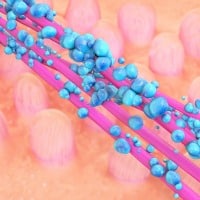New research suggests that treating a leaky gut may promote longevity. Alterations in the intestinal microbiota have been linked with aging and measures of frailty in the elderly. To investigate this Dr Rebecca Clark, a UCLA postdoctoral scholar when the research was conducted and now a lecturer at Durham University (England), and colleagues analysed the gut bacteria of more than 10,000 female fruit flies, to see if their microbiota had any impact upon lifespan – previous research by the same group had revealed that fruit flies develop a leaky gut five or six days before they die. Study results showed that the scientists were able to detect changes in the intestinal microbiota, characterized by an expansion of the Gammaproteobacteria, which occurred just prior to the development of leaky gut. The researchers then went on to show that it is possible to reduce bacterial levels in the intestine and prevent the flies from developing leaky gut by treating them with antibiotics. Results also revealed that using antibiotics to reduce bacterial levels can significantly prolong the flies lifespan. Flies treated with antibiotics as soon as changes in their microbiota were detected lived for an average of 20 days, whereas untreated flies with leaky intestines died within a week. “The health of the intestine – In particular the maintenance of the barrier protecting the rest of the body from the contents of the gut – is very important and might break down with aging,” said Dr Clark.
Gut Bacteria Linked to Age-Related Diseases
Clark RI, Salazar A, Yamada R, et al. Distinct shifts in microbiota composition during drosophila aging impair intestinal function and drive mortality. Cell Rep. 2015;12:1656-1667.
RELATED ARTICLES




